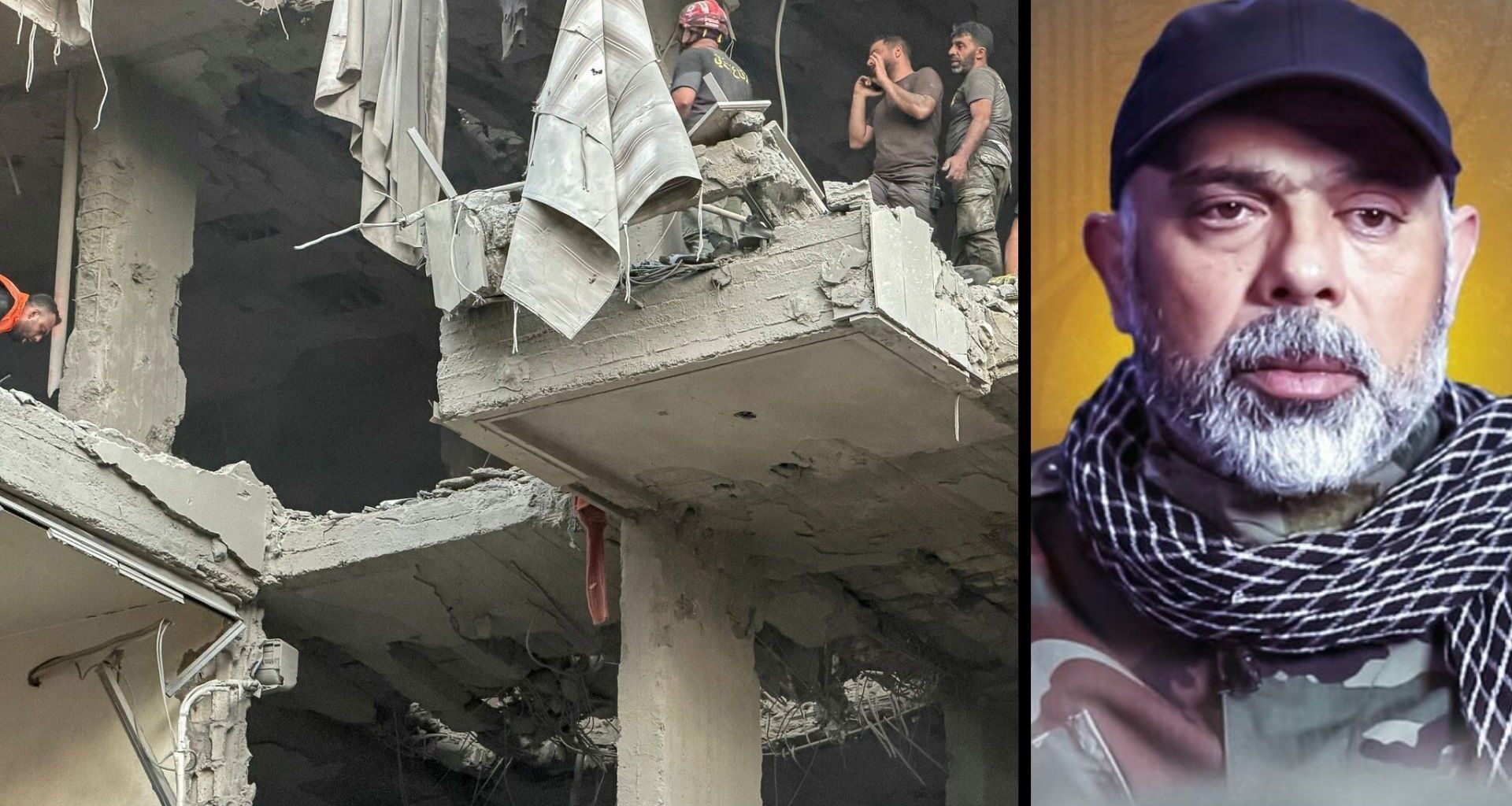Israel said on Sunday it had killed Hezbollah’s military chief of staff, Haytham Ali Tabatabai, in a targeted airstrike in the southern suburbs of Lebanon’s capital, Beirut. The terror group later confirmed his death in a statement.
Tabatabai was considered second only to Secretary-General Naim Qassem in the Iran-backed terror group’s command structure.
The IDF confirmed Tabatabai was killed, saying he was a “veteran and central operative in the terror organization,” after joining its ranks in the 1980s and holding several senior roles, including the commander of the elite Radwan Force and heading Hezbollah’s operations in Syria.
During the war, the military said, Tabatabai was appointed to head Hezbollah’s operations division, responsible for “consolidating the organization’s situational picture and force buildup.”
In late 2024, after most of Hezbollah’s leadership was killed, he “effectively served as the official responsible for managing the fighting against Israel,” the IDF said.
Get The Times of Israel’s Daily Edition
by email and never miss our top stories
By signing up, you agree to the terms
After the end of the fighting between Israel and Hezbollah in November 2024, he was officially appointed as the military chief of staff in the terror group. “In this role, he led the organization’s reconstruction,” the military said.
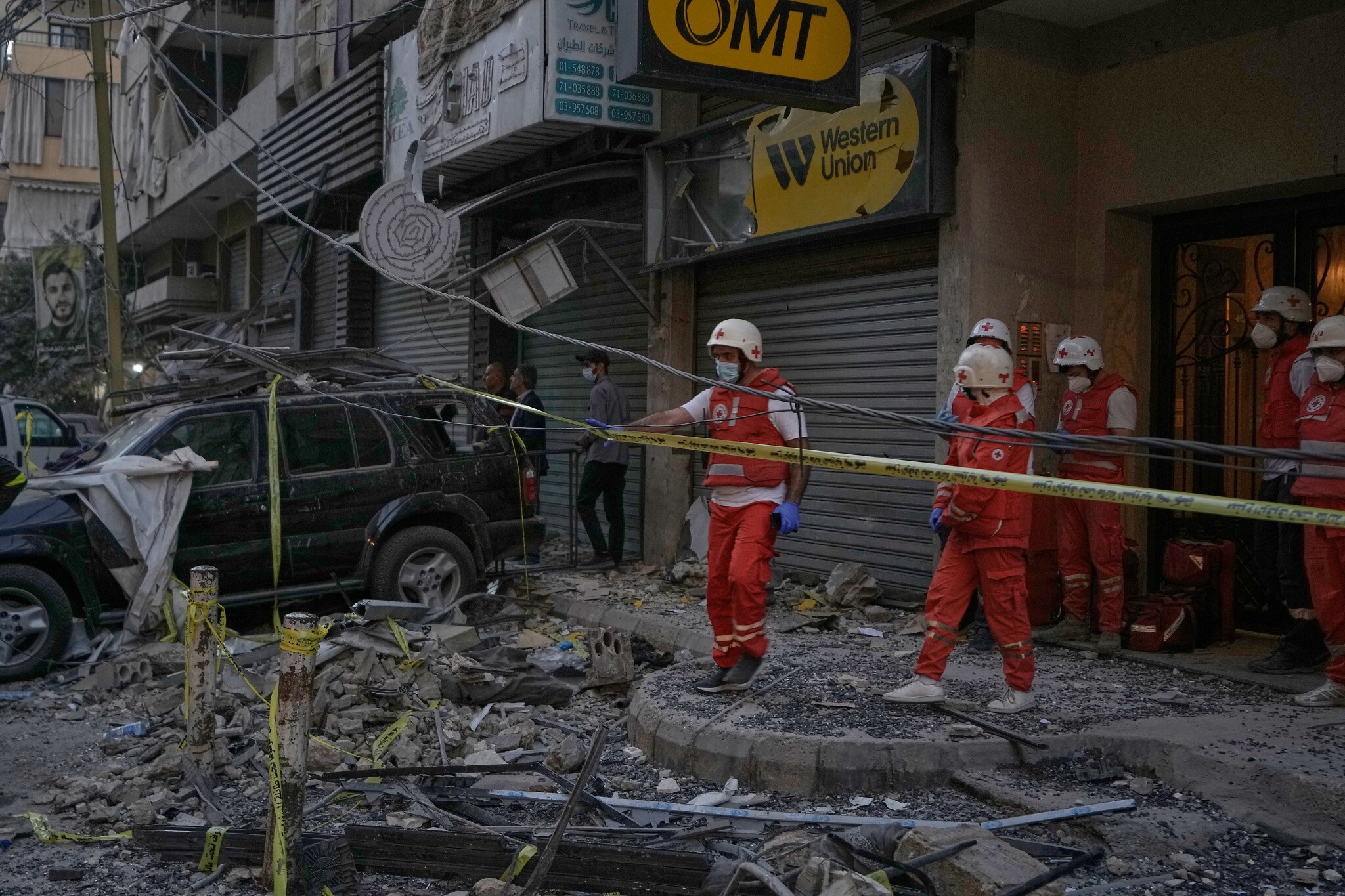
Lebanese Red Cross volunteers work at the site where an apartment building was hit during an Israeli airstrike in the southern suburb of Beirut, on November 23, 2025. (AP Photo/Bilal Hussein)
An AFP correspondent at the scene said the strike hit the third and fourth floors of a nine-story building. Lebanon’s state NNA outlet reported three missiles were fired at the building in the Haret Hreik area — a Hezbollah stronghold — damaging vehicles and other nearby structures.
Lebanon’s health ministry reported at least one person killed in the strike, and 21 people wounded, calling it a “preliminary toll.”
The IDF issued footage of the strike.
An Israeli airstrike targeting Hezbollah’s de facto military chief Haytham Ali Tabatabai in Beirut, November 23, 2025. (Israel Defense Forces)
Israel has been escalating its strikes on Hezbollah in recent weeks, accusing the terror group of violating the year-old ceasefire and increasingly attempting to rebuild its capabilities, and expressing frustration at lagging Lebanese efforts to disarm the group.
The strike came almost exactly a year after the US-brokered truce in Lebanon took effect on November 27, 2024.
Tabatabai’s assassination came in response to “Hezbollah’s repeated violations of UN Security Council Resolution 1701 and the 2024 ceasefire understandings, as well as the threat he posed to Israel and to regional stability,” the Foreign Ministry said after the strike.
Israel “will not allow Hezbollah to rebuild its military capabilities and once again threaten the security of Israel and its citizens. The organization’s aggressive actions constitute a clear violation of international obligations and agreements,” the ministry said in a statement.
The Lebanese government has failed to address Hezbollah’s violations, said Israel, while Hezbollah is working to “restore and expand” its military capabilities.
“Israel is committed to the full implementation of the ceasefire understandings and has reported hundreds of violations through the international mechanism led by the United States,” the Foreign Ministry said.
Netanyahu: ‘Israel will not let Hezbollah rebuild its strength’
The Prime Minister’s Office announced shortly after the attack that “the IDF struck, in the heart of Beirut, the Hezbollah chief of staff who led the organization’s military buildup and armament efforts.”
“Prime Minister [Benjamin] Netanyahu ordered the strike on the recommendation of the defense minister and the IDF chief of staff,” it said.
In a video statement issued a few hours later, Netanyahu called Tabatabai “a mass murder” with the blood of many Israelis and Americans on his hands, and vowed: “Israel will not let Hezbollah rebuild its strength.”
The premier said that he “expects the Lebanese government to fulfill its commitment to disarm Hezbollah.”
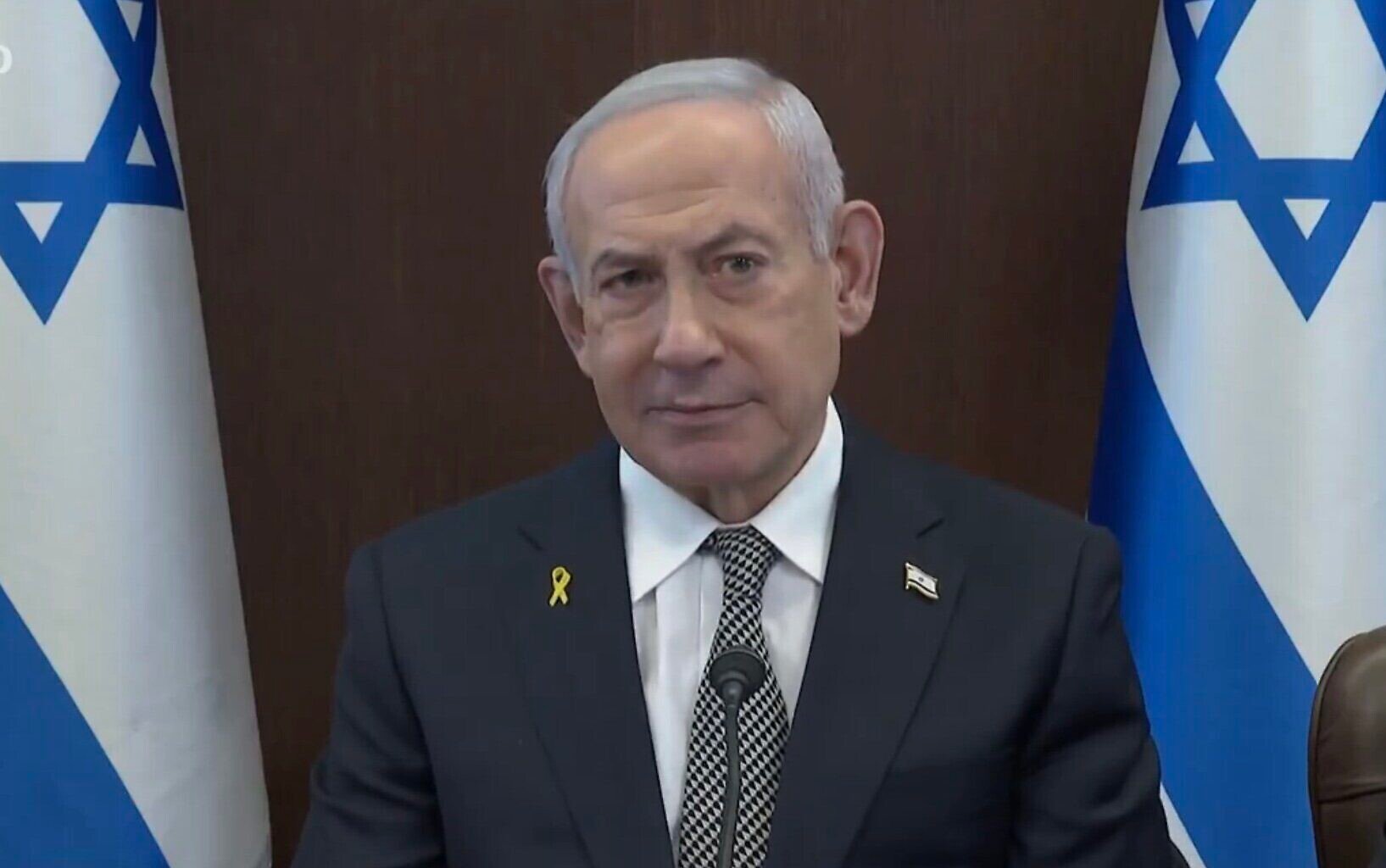
Prime Minister Benjamin Netanyahu speaks at the weekly cabinet meeting in Jerusalem, November 16, 2025. (Screenshot/GPO)
Defense Minister Israel Katz, too, vowed that Israel will continue to take action against those who threaten it.
“Whoever raises a hand against Israel — that hand will be cut off,” Katz said, adding that he will not allow Israel to return to the situation that existed prior to October 7, 2023, with Hezbollah a constant looming threat on Israel’s northern border.
Hezbollah: Strike crossed ‘red line’; Beirut demands action
Shortly after the strike — before the target was confirmed — Hezbollah official Mahmud Qomati told reporters at the impact site that the attack “crosses a new red line.”
Later, the terror group confirmed Tabatabai’s death, eulogizing him as a “great Jihadi commander.”
Tabatabai “dedicated his life to the resistance since its inception” over four decades ago, and “was among the leaders who laid the foundation” for it, Hezbollah said.
And Lebanese President Joseph Aoun called on the international community to intervene firmly to stop Israeli attacks on the country.
In a statement, Aoun said Lebanon “reiterates its call to the international community to assume its responsibility and intervene firmly and seriously to stop the attacks on Lebanon and its people.”
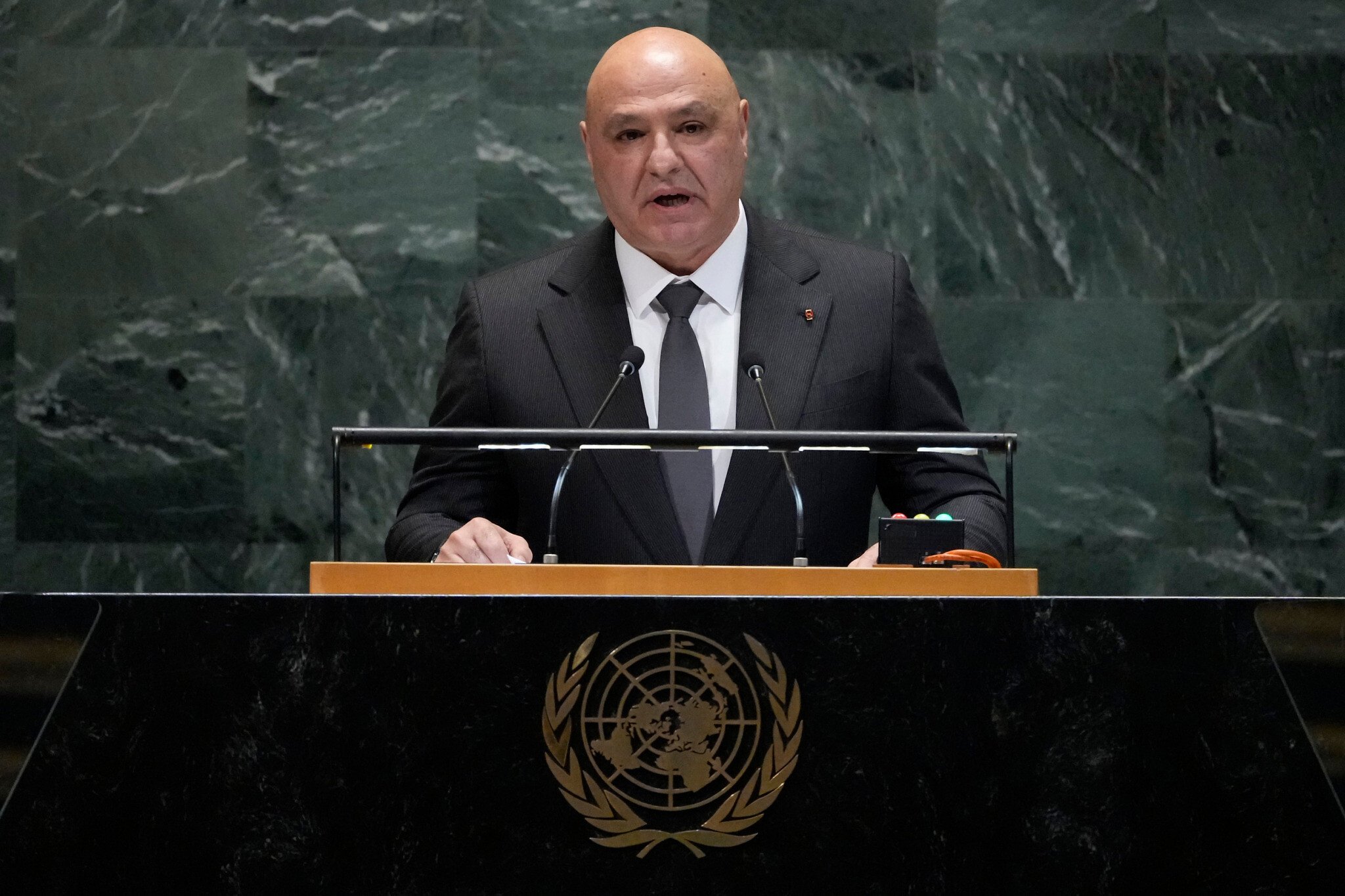
Lebanon President Joseph Aoun addresses the 80th session of the United Nations General Assembly, September 23, 2025, at UN headquarters. (AP Photo/Pamela Smith)
Senior US official calls strike ‘wonderful’: ‘Mazal tov, mabruk’
The US, however, was “pleased” with the strike, a senior American official told Channel 12.
“We are pleased with the elimination of the number two in Hezbollah,” the official said, before slipping into Hebrew and Arabic: “We think it’s a wonderful thing. Yalla, mazal tov, mabruk.”
Channel 12 reported earlier that Washington had known for several days that Israel was planning to escalate its strikes in Lebanon, but was not alerted in advance about the specific Sunday strike on Tabatabai.
The last IDF strikes on Beirut, the Lebanese capital, took place in July. Those attacks targeted Hezbollah infrastructure, and they came after evacuation warnings.
Tabatabai led Hezbollah force tasked with invading Israel
Tabatabai, born in 1968 in Beirut, was the son of a south Lebanese mother and an Iranian father. He was raised in southern Lebanon and joined the terror group in his youth.
He had been wanted by the United States since 2016, with a $5 million bounty for information on him.
Tabatabai previously commanded Hezbollah’s elite Radwan Force, which was tasked with preparations to invade Israel. Israeli officials say Hezbollah had long planned an October 7-style terror assault on northern Israel border communities.
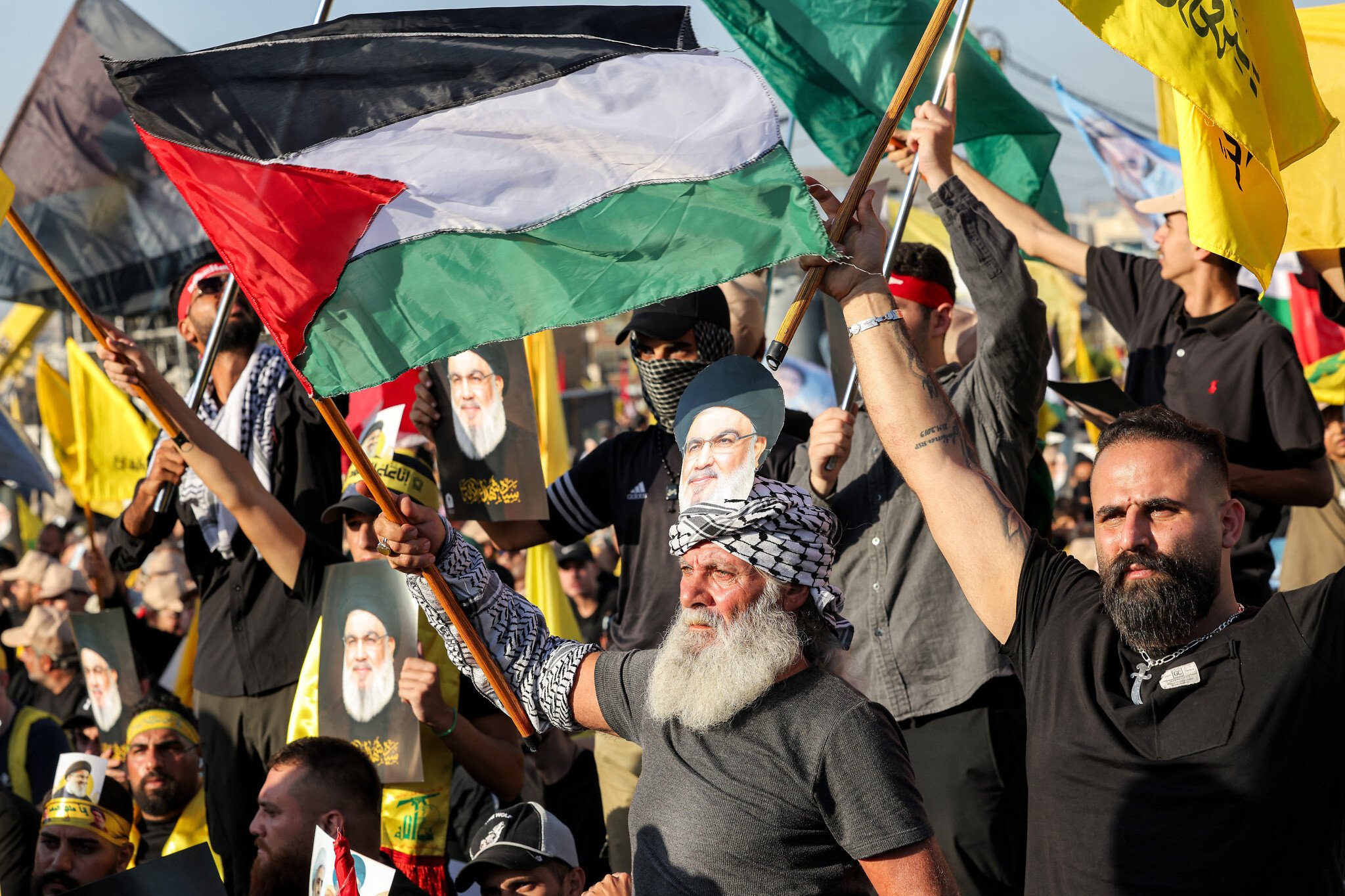
Supporters of the Hezbollah terror group wave Hezbollah and Palestinian flags as they attend a ceremony marking the first anniversary of Israel’s assassination of their longtime leader Hassan Nasrallah in Beirut’s southern suburbs on September 27, 2025. (Anwar AMRO / AFP)
According to the US Department of State, he also commanded Hezbollah’s special forces in Syria and Yemen.
In 2015, Israel attempted to assassinate Tabatabai in southern Syria, in a strike that killed Jihad Mughniyeh, the son of Imad Mughniyeh, a senior Hezbollah commander killed in Damascus in 2008.
Tabatabai was promoted in late 2024, after the IDF eliminated most of Hezbollah’s top leadership. Former chief of staff Fuad Shukr was killed in a strike on Beirut in July 2024. His replacement was swiftly killed as well.
